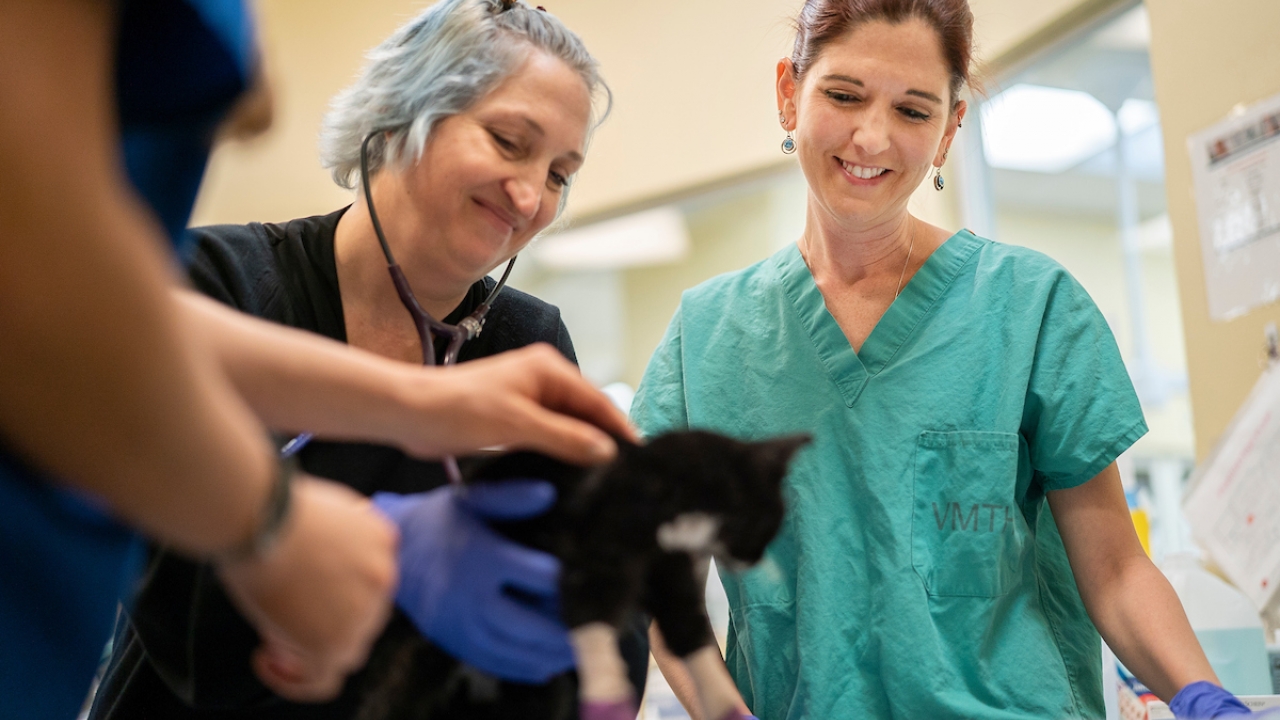
UC Davis Honors Recipients of 2019 Chancellor’s Innovation Awards
By Lisa Howard
The University of California, Davis, announced the recipients of the 2019 Chancellor’s Innovation Awards at a ceremony at the UC Davis Mondavi Center for the Performing Arts May 30. It is the fourth year for the awards, which recognize the important contributions of faculty, community partners and industry leaders in helping to establish UC Davis as a global leader in innovation.
“These honorees represent the spirit of excellence and innovation that distinguishes UC Davis as one of the best public research universities in the nation,” said Chancellor Gary May. “They are the game-changers making a positive impact — not only in our region, but also around the world.”
“It is both a pleasure and a privilege to celebrate the campus innovators and community partners whose contributions have resulted in important societal and regional impact in the last year as well as through their lifetime of innovative achievement,” said Dushyant Pathak, associate vice chancellor of Innovation and Technology Commercialization in the UC Davis Office of Research and executive director of the Venture Catalyst unit which manages the award.
Innovators of the Year
This year’s Innovators of the Year recipients are Jamie Peyton, chief of Integrative Medicine Service at the UC Davis Veterinary Medical Teaching Hospital and Michael Rogawski, professor in the UC Davis Departments of Neurology and Pharmacology and former chair of the Department of Neurology.
The Innovator of the Year award recognizes individual faculty, staff or teams whose innovative research or accomplishments have made a measurable societal impact in the preceding year, or whose university activities have achieved important milestones and have had or present very strong potential for societal impact. Recipients receive $10,000 which can be applied to their research or to their university enabled societal engagement efforts.
Jamie Peyton
Veterinarian Jamie Peyton was selected as an Innovator of the Year for her successful and groundbreaking use of sterilized tilapia skin to treat animals with burns. Peyton developed the technique to prepare and store the tilapia skin bandages, which are high in a collagen matrix that promotes wound healing while covering delicate nerve endings for almost immediate pain relief. The treatment has the potential to dramatically change veterinary burn care. Peyton’s work first gained attention with the successful use of tilapia skin to quickly heal the severely burned paws of two bears that survived the December 2017 Thomas Wildfire in Southern California. The success of the technique led to using tilapia skin treatment on numerous companion animals and wildlife, including animals injured in the devastating 2018 Camp Fire and a horse in England burned in a chemical attack. The treatment has healed numerous animals that would have otherwise been euthanized. The idea, adapted from a Brazilian medical team using tilapia skin on human burn patients, has been used in 13 animal species to date, all with resounding success.
Michael Rogawski
Neurologist Michael Rogawski was selected Innovator of the Year for his groundbreaking research with allopregnanolone, also known as brexanolone. Earlier this year, brexanolone received Food and Drug Administration approval as the first and only specific drug treatment for women with postpartum depression. In the United States, roughly one in every nine women who give birth will experience postpartum depression, a major depressive disorder that can have devastating consequences for a woman and her family. Rogawski became interested in developing a treatment for postpartum depression with allopregnanolone when his studies showed the naturally-occurring neurosteroid had antidepressant possibilities. During pregnancy, levels of the hormone progesterone rise dramatically but fall precipitously during the day or two after giving birth. Levels of allopregnanolone, which is derived from progesterone, also fall after childbirth. Rogawski reasoned that withdrawal of allopregnanolone might trigger depression in some susceptible women. With collaborators at UC Davis, he developed a formulation of allopregnanolone that restores the blood level of allopregnanolone to that in late-stage pregnancy. Sage Therapeutics licensed rights, including certain patent rights, from the University of California for commercial use of allogpregnanolone and plans to release Zulresso (brexanolone) in June 2019. Zulresso is expected to improve women’s health and to impact treatment protocols for postpartum depression locally, nationally and globally.
